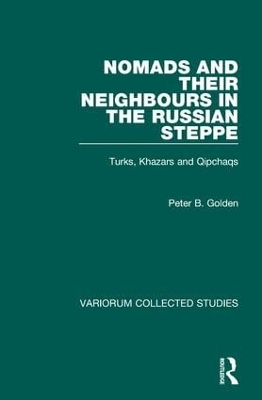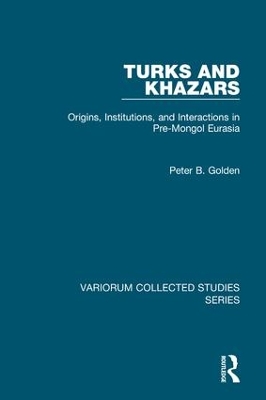Variorum Collected Studies
2 total works
The western steppelands of Central Eurasia, stretching from the Danube, through the modern Ukraine and southern Russia, to the Caspian, have historically been the meeting ground of Inner Asian pastoral nomads and the agrarian societies of Eastern Europe and the Caucasus. This volume deals, firstly, with the interaction of the nomads with their sedentary neighbours - the Kievan Rus’ state and the medieval polities of Transcaucasia, Georgia in particular - in the period from the 6th century to the advent of the Mongols. Second, it looks at questions of nomadic ethnogenesis (Oghuz, Hungarian, Qipchaq), at the evolution of nomadic political traditions and the heritage of the Turk empire, and at aspects of indigenous nomadic religious traditions together with the impact of foreign religions on the nomads - notably the conversion of the Khazars to Judaism. A number of articles focus on the Qipchaqs, a powerful confederation of complex Inner Asian origins that played a crucial role in the history of Christian Eastern Europe and Transcaucasia and the Muslim world between the 11th and 13th centuries.
This second collection of studies by Peter Golden continues his explorations of the Türk Empire (mid-sixth to mid-eighth centuries), the stateless polities that appeared after its collapse, and of the Khazar Qaghanate (mid-seventh century to ca. 965-969), its imperial successor state in the western Eurasian steppes. Building on earlier traditions, the Türks created a paradigm for state building in the Eurasian steppes that persisted, with variations, into the early modern era. Examined here are issues relating to the origins of and myths associated with the rise of the Türks and the systems of governance in the Türk and subsequent Turkic polities of Eurasia. The institution of slavery and its role in Turkic nomadic societies receives significant attention. In addition, these essays document the cultural interactions between the Turkic nomads of pre-Chinggisid Eurasia and neighbouring settled societies such as the Kievan Rus', Georgia and the Islamic world. Included here are studies dealing with the hitherto neglected role of Khazars in the Islamic ghulâm (slave soldier) system. Special attention is paid to the unique traditions of sacral rulership among the Khazars and an examination of their conversion to Judaism set within a larger Eurasian context.

